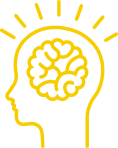Indonesia
Corruption risk in Indonesia’s upstream oil and gas industry
Research partners:
- Universitas Mercu Buana, Indonesia (lead institution)
- Special Task Force for Upstream Oil and Gas Business Activities SKK-Migas, Indonesia
Principal investigators: Professor Dana S. Saroso and Dr Ing Budi Ibrahim
Co-investigators: Tony Robey and Dr Ir. Henky Suskito Nugroho, M.T.
Summary
This research project, a collaboration between the Unversitas Mercu Buana and the Indonesian Special Task Force for Upstream Oil and Gas Business Activities, will map the risk factors for corruption in the upstream oil and gas industry in Indonesia. Over the last decade, the Government of Indonesia has become increasingly concerned that petroleum companies operating the country’s oil and gas fields have been inflating costs through overspending. Drawing on years of work on corruption risk mitigation in Indonesian oil and gas industry, this research project will review and analyse relevant published policy which is designed to mitigate the risk of corruption, including bribery risk, as well as studying the implications of the absence of legislation in Indonesia to prosecute corruption in the private sector and more specifically bribery in the upstream oil and gas industry.
Why oil and gas?
The oil and gas industry in Indonesia is a significant source of national revenue in tax receipts and through production sharing contracts (PSCs) under which a contractor is entitled to a share of total production to cover exploration and development costs, while the remaining production is spilt between the contractor and the government. This approach has been replicated in a number of oil producing countries. However, PSCs have been found to been at greater risk of corruption than other systems of extracting value from oil and gas production. The implications of this research may therefore have far-reaching findings to inform the anti-corruption work of other oil-producing nations.
The research project
In 2016, a report by the Supreme Audit Agency (BPK), revealed that several petroleum companies (“contractors”) had inflated the reimbursement of their operating claims by US$300 million, resulting in considerable loss of state revenue from the oil and gas sector. The project will draw on information and evidence provided by SKK Migas, for example, the results of compliance, forensic and investigative audits from 2015 onwards, with the support of the Indonesian Corruption Eradication Commission. This data will be used to map and analyse the occurrence of corruption in the private oil and gas sector, including cases where high cost recovery rates in PSC agreements appears to be due to corruption.
The project will seek to answer the question of whether the absence of legislation to combat corruption in the private sector of upstream oil and gas is making this corruption more difficult to control. The researchers will identify whether using investigative audit methods and anti-bribery management systems can reduce costs and increase health competitive to boost productivity in the sector.
Research publication
Mapping corruption risk in Indonesia’s upstream oil and gas industry (Working Paper)
This research project was completed in April 2020.
This research project is one of nine projects from our grants scheme that aim to tackle corruption in the private sector.






